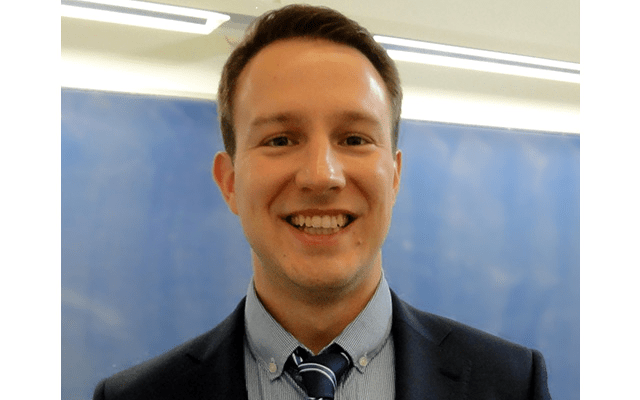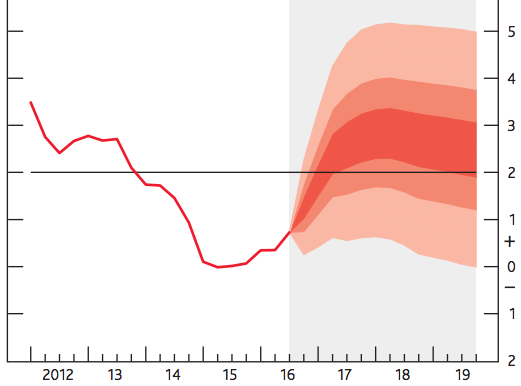research
Unicredit & Universities Job Market Best Paper Award goes to Greg Ganics (Economics '12 and GPEFM)

Greg Ganics has been named one of two winners of the 2016 Unicredit & Universities Job Market Best Paper Award for his paper, "Optimal density forecast combinations." Ganics is an alum of the BSE Master Program in Economics (Class of 2012) and a PhD candidate at GPEFM (UPF and BSE).
Unicredit & Universities gives the best paper award to outstanding PhD candidates or graduates who will participate to the Job Market at the American Economic Association Annual Meeting in 2017 and are are enrolled at one of the following institutions: BSE; Bocconi University; London School of Economics and Political Science; Mannheim University; Oxford University; SciencesPo; Stockholm School of Economics; or Toulouse School of Economics.
"It is a great honor and I was very happy when I received the email telling me I won the Award," Mr. Ganics said. "I am very grateful to UPF and the BSE for all the support they have provided. I would like to express my gratitude to my advisor Professor Barbara Rossi, and Professor Majid Al Sadoon, whose help was invaluable in writing my job market paper. Professor Christian Brownlees and Professor Geert Mesters also provided excellent guidance."
He explains that the inspiration for his paper came out of a CREI Macroeconomics Summer School course he attended with Prof. Rossi.
"In the summer of 2014, I attended Professor Rossi's course “Recent Developments in Forecasting” at the CREi Summer School, which sparked my interest in density forecasts. Density forecasts go beyond point forecasts as they provide a measure of uncertainty surrounding point forecasts, which facilitates communication between researchers, policy makers, and the wider public. For example, the Bank of England regularly publishes its “fan charts," which summarize their view on the likely range of the future path of key economic variables, such as inflation."

Fan chart. Source: Bank of England.
A new method for combining density forecasts
In his paper, Mr. Ganics provides a method to combine density forecasts coming from various models to obtain a superior, well-calibrated density forecast.
"I hope researchers will find this method useful when they have several models and they want to exploit their strengths, for example when predicting economic growth or stock returns, and they want to go beyond point forecasting," he said.
As the winner of this competitive award, Mr. Ganics will have the opportunity to present his paper at the Spanish Economic Association Job Market, to be held in Bilbao this December.
To current masters students who might like to someday have this same opportunity, Mr. Ganics recommended pushing themselves to take advanced courses and to read beyond the list on the syllabus.
"I benefited a lot from taking challenging courses that provided the tools to understand, and later on contribute to the literature," he said. "Also, reading additional books, papers and lecture notes proved to be very useful throughout my graduate studies. Find an interesting topic and read about it. Talk to professors and your fellow students and see what they think, how they can help you understand where the current literature stands and what the promising ways for further research are."
He also emphasized the importance of supportive, dynamic research community. "The BSE and UPF are both well-known for cutting-edge research in macroeconomics, and given that I always liked statistics and econometrics in addition to macro, I was very happy when I was given the opportunity to study here. Also, Barcelona is an absolutely amazing place to study and live. Faculty and staff at both BSE and UPF have always been very helpful and supportive, and they provided me with everything to focus on research."
Mr. Ganics has written a non-technical summary of his job market paper for the student and alumni blog, the BSE Voice. Read the summary here
See also
GPEFM and IDEA doctoral programs
CREI Macroeconomics Summer School
